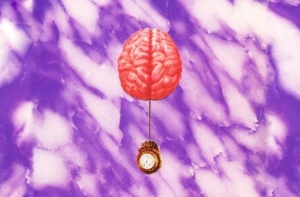
An energy drink ad currently airing asks, “What if people had a battery-level icon, like on your phone?” as we see an assortment of people dressed for the office, navigating a city sidewalk, each with their own percentage level, most green, some red and running out. “You’d see a lot of us walking around,” the voice-over continues, “in need of a recharge.” The beverage is then presented as a kind of lightning-fast charging cable for the body.
The ad’s gimmick plays not only to the fantasy that our life force can be captured in some simple unidimensional measure and actively managed but also to the broader, more insidious notion that people should function like phones. The expectations we have for our devices saturate our expectations of others (whether they are friends, family, service workers, or robots) and ultimately ourselves. We should be capable of handling any task we’re hired for, moving seamlessly from one interface to the next, from one application to another, for as long as required. If we can’t, we need to “recharge” ourselves: to find the right drug combination or exercise regimen, or else to sit ourselves out for precisely as long as we need to get back to 100 percent. The idea that we are anything other than self-sufficient and energy independent is suspended for a fantasy of instrumental control.
Digital networks and resources can give the illusion of accessibility — if anyone can access nutritional guidelines, for instance, anyone should be able to follow them. This incorrect notion produces a moral residue: If anyone can “do it” — be healthy and attractive and alert and prepared to capitalize on any opportunity — than to not do it is a moral failing. We might recognize illness as no-fault but also censure any “failure” to treat it according to social protocols.
Self-optimization becomes a form of piety: privatized labor of personal responsibility as public good. This plays out as a commitment to efficiency, as in “if you’re not optimizing your life for the benefit of your work (whether or not that work helps anyone other than your employer) you are dead weight” — a drain on other people’s material and emotional resources. If work is life, then professional imperatives are moral imperatives too. This portends a condition in which health is indistinguishable from productivity.
This week, Rebecca O’Dwyer writes about the proliferation of sobriety apps and how these work to redefine the concept. Removed from the context of addiction, sobriety is recast as a wellness practice, like fad dieting, and brought in line under the discourse of self-betterment. By this thinking, one can be “sober” even while taking drugs like ayahuasca or LSD to increase creative potential, as “sobriety” is recast as a state of readiness for work.
What’s at stake isn’t personal health and happiness, let alone collective well-being, but rather employer demands for output. As Alex Beattie writes, “disconnectionism recodes self-care as the maintenance of a normative level of productivity, with social media diets and the like serving as ascetic rituals of discipline and focus.” The “digital detox” isn’t recommended so much as a means of fulfillment or engagement with life but as a management strategy for maintaining productive focus. The demonization of distraction functions as an alibi for the employer cooptation of attention.
As social supports are being dismantled and jobs are scarce and often poorly paid, seeming anything less than 100 percent committed to working whenever begins to seem risky. To let oneself go is to lose crucial competitive advantage, which is increasingly conflated with a kind moral and physical unfitness. As O’Dwyer points out, the preoccupation some have with the minutiae of their consumption has a superstitious cast. Obsessive self-care is the flipside of self-destruction: Both can provide the illusion of control over life’s injustices and unpredictable pains, a sense of agency — as if we always get what we choose and what we deserve.
Featuring:
“Straight Edge,” by Rebecca O’Dwyer

“Out of Network,” by Alex Beattie

Thank you for your consideration. Visit us next week for Real Life’s upcoming installment, CURSES AND HAUNTS.